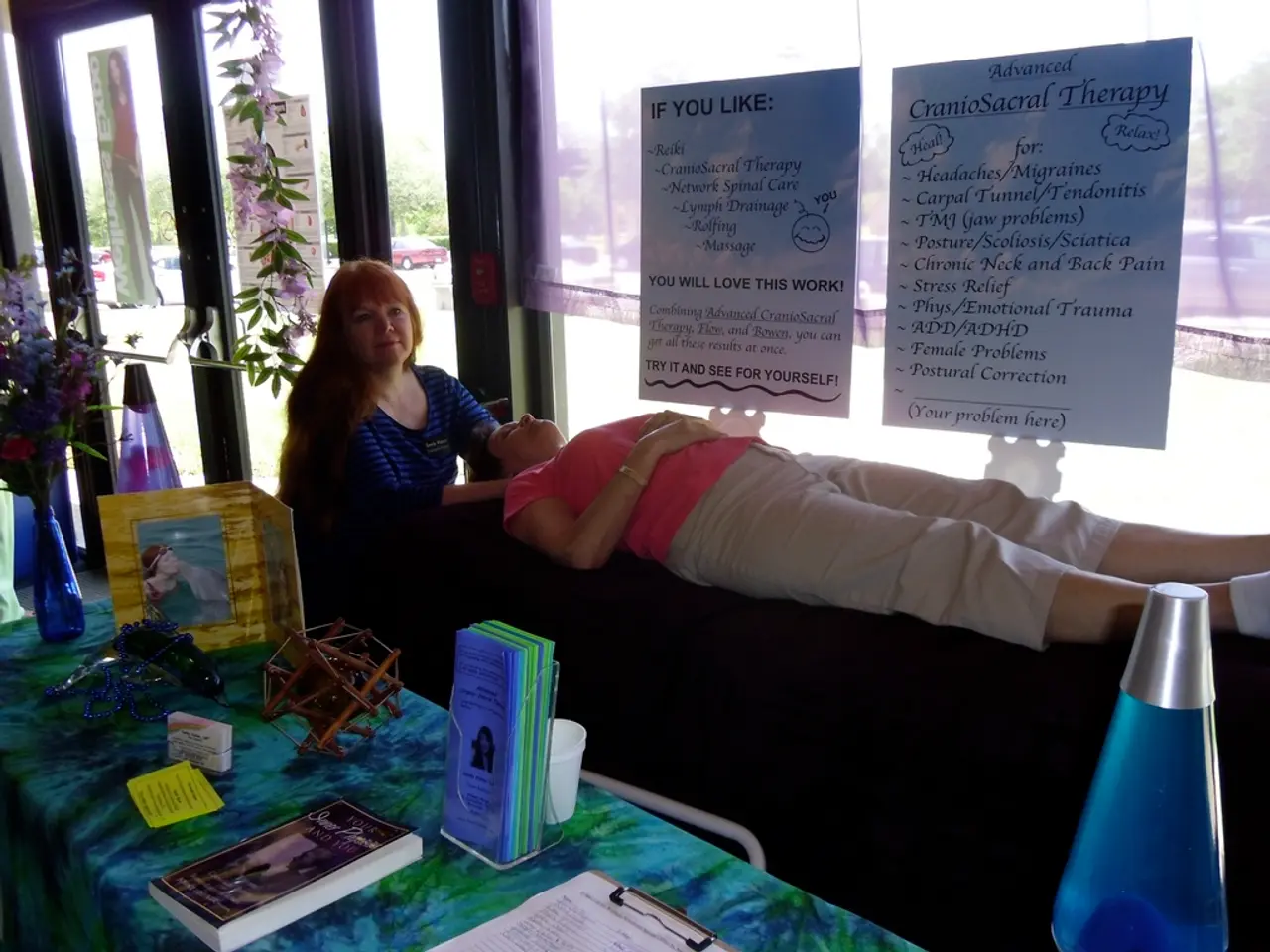Assisting Family Members in Coping with Elderly Relatives' Mourning and Melancholy
In the twilight years of life, it's not uncommon for elderly adults to face the loss of loved ones, significant life changes, or the end of meaningful relationships. As a result, they may experience feelings of grief or depression. Recognising the difference between these two emotional states and providing appropriate support is crucial for their mental and emotional health.
Grief, a natural response to loss, typically involves feelings of sadness, yearning, and other emotions that fluctuate over time. However, it's important to note that grief does not necessarily impair daily functioning long-term, although it can be intense initially. On the other hand, depression, particularly Major Depressive Disorder (MDD), is a clinical mood disorder characterised by persistent sadness, loss of interest in activities, and a range of physical and cognitive symptoms lasting at least two weeks.
To differentiate between grief and depression in elderly adults, it's essential to understand their distinct characteristics and symptoms.
| Symptom/Sign | Grief | Depression | |-------------------------------|-----------------------------------------------|----------------------------------------------| | Emotional experience | Intense but fluctuates; waves of sadness | Persistent, pervasive sadness or hopelessness| | Interest in activities | May have moments of pleasure and engagement | Loss of interest or pleasure in almost all activities | | Physical symptoms | Usually less pronounced | Fatigue, aches, appetite, and sleep problems | | Cognitive symptoms | Generally intact | Memory issues, concentration difficulties | | Social engagement | May isolate briefly but can re-engage | Social withdrawal lasting a long time | | Duration | Grief's intensity decreases over months | Symptoms persist and often worsen without treatment | | Suicidal ideation | Less common, usually related to intense grief | More common and serious, requiring immediate attention |
Effective support strategies centre around emotional support, social connection, and facilitating access to professional care. Emotional support from family, friends, and caregivers helps reduce loneliness and anxiety, which is crucial for elderly adults who may face isolation or stress from health issues. Encouraging open communication allows for early detection of depressive symptoms and helps the individual feel understood and cared for.
Promoting social engagement through hobbies, community activities, or support groups can improve mood and reduce feelings of isolation. Assistance with treatment adherence is vital for those diagnosed with depression; motivated seniors often recover faster when they consistently follow medication regimens and therapy plans.
Monitoring for changes in behaviour and mood ensures timely professional intervention if depressive symptoms (e.g., persistent sadness, suicidal thoughts) are present. When grief is predominant, normalising and validating the grieving process while providing compassionate presence can support natural emotional healing; professional counseling can be helpful if grief becomes complicated or prolonged.
In conclusion, identifying whether an elderly adult is experiencing grief or depression requires careful observation of symptom patterns, duration, and impact on functioning. Supporting them effectively involves providing emotional care, encouraging social participation, and seeking medical or psychological treatment when depression is suspected. Early and compassionate intervention improves both mental well-being and overall health recovery for elderly individuals.
Offering simple, healthy meals that they enjoy can support their overall well-being, while keeping a schedule can reduce stress and confusion in seniors. Supporting an elderly loved one involves seeing what's going on, gently asking how they feel, and listening carefully.
- The difference between grief and depression in elderly adults is crucial to understand, as their symptoms and impact on functioning differ significantly.
- Grief, a natural response to loss, fluctuates over time and usually does not impair daily functioning long-term, while depression, particularly Major Depressive Disorder (MDD), is a clinical mood disorder with persistent symptoms lasting at least two weeks.
- Effective support strategies involve emotional support, social connection, and facilitating access to professional care, which can improve mental and emotional health in elderly adults.
- Mental health in aging is not solely about dealing with depression; it also centers around promoting emotional well-being through appropriate coping strategies, maintaining a healthy diet, and ensuring a structured routine to reduce stress and confusion.








